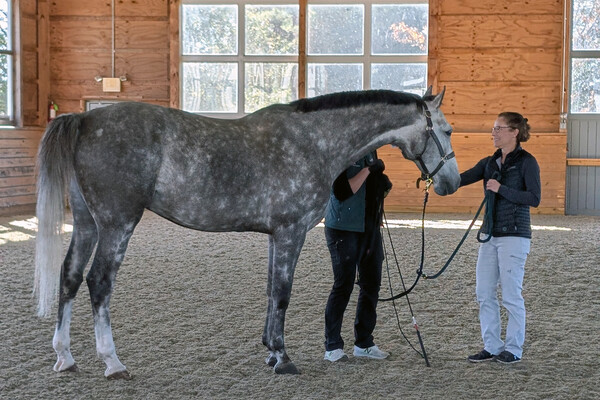
Amy Johnson with client horse Cartier in New Bolton Center’s Equine Performance and Evaluation Facility arena.
nocred

Amy Johnson with client horse Cartier in New Bolton Center’s Equine Performance and Evaluation Facility arena.
nocred
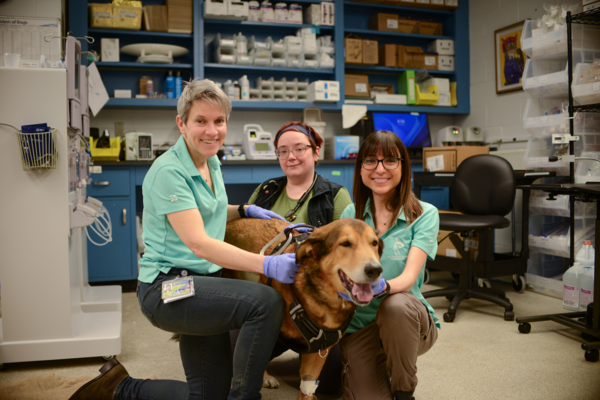
(Left to right) Nicola Mason, Mary Beth Boland, and Antonia Rotolo with Rex, first dog treated on metastatic osteosarcoma trial.
nocred
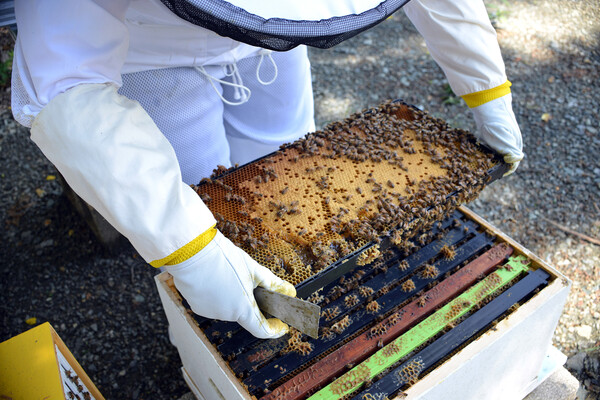
nocred
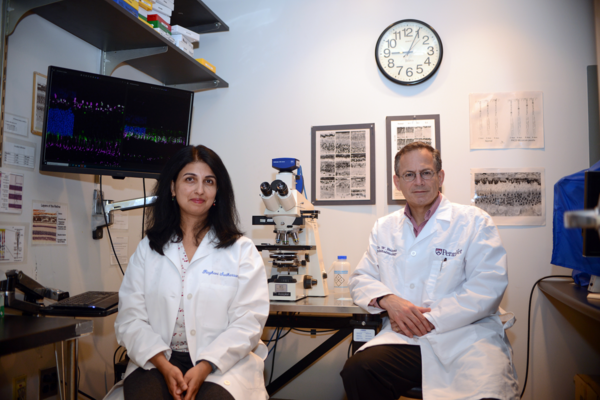
Raghavi Sudharsan and William Beltran of the Division of Experimental Retinal Therapies at Penn’s School of Veterinary Medicine.
nocred

Dana Bubka, an aspiring diagnostic poultry veterinarian, has been doing clinical rotations at New Bolton Center leading up to her graduation in May from the School of Veterinary Medicine.
nocred
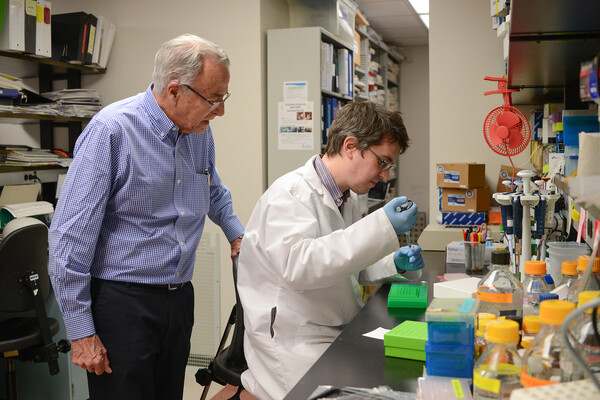
Gustavo D. Aguirre and Leonardo Murgiano of the School of Veterinary Medicine of the University of Pennsylvania.
(Image: John Donges)
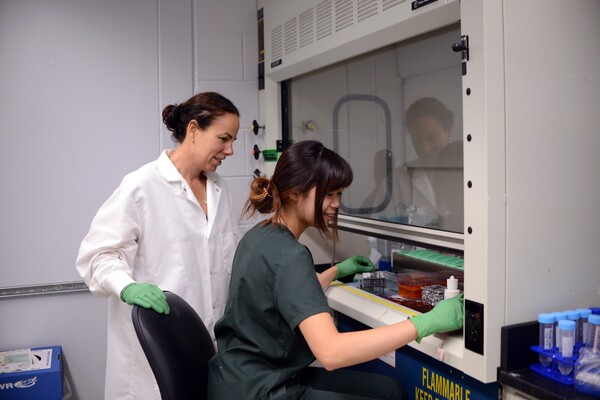
Rising second-year Sidney Wong, right, spent the summer working in the lab of Penn Vet professor Kyla Ortved, left, through the Penn Undergraduate Research Mentoring Program.
nocred

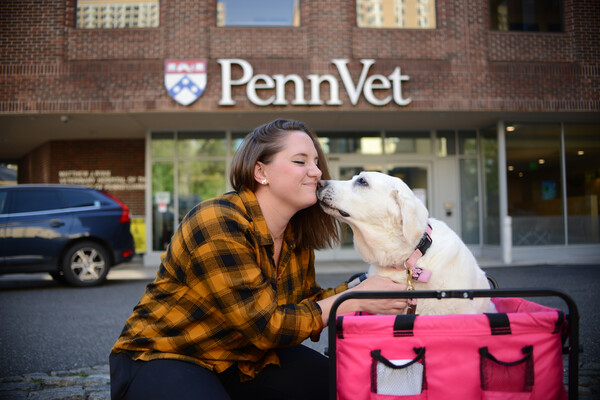
(Homepage image) Meg Ruller, a 2018 graduate of the School of Veterinary Medicine, calls the FLASH trials “a fantastic opportunity” for Maple to receive a cutting-edge treatment—and to contribute to a scientific understanding of how FLASH radiation might help others in the future.
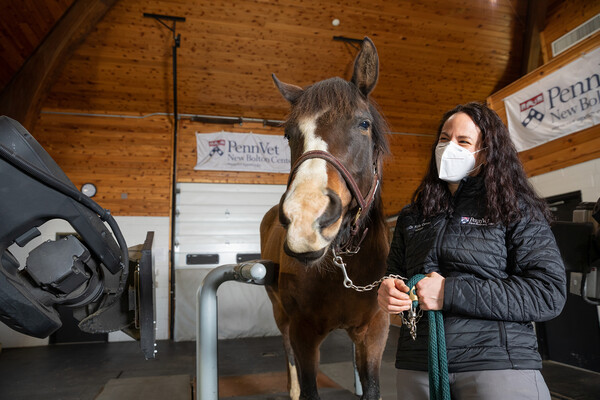
Kyla Ortved runs the Ortved Laboratory at the School of Veterinary Medicine’s New Bolton Center. (Image also featured on Homepage)